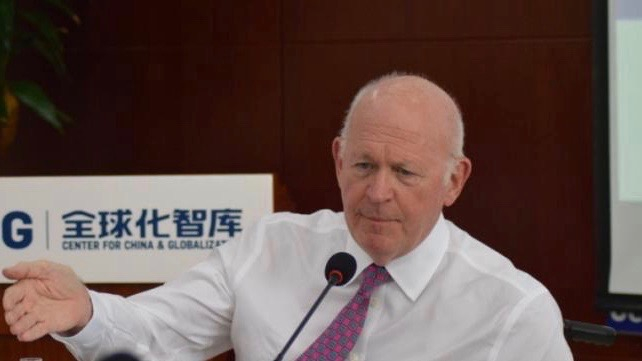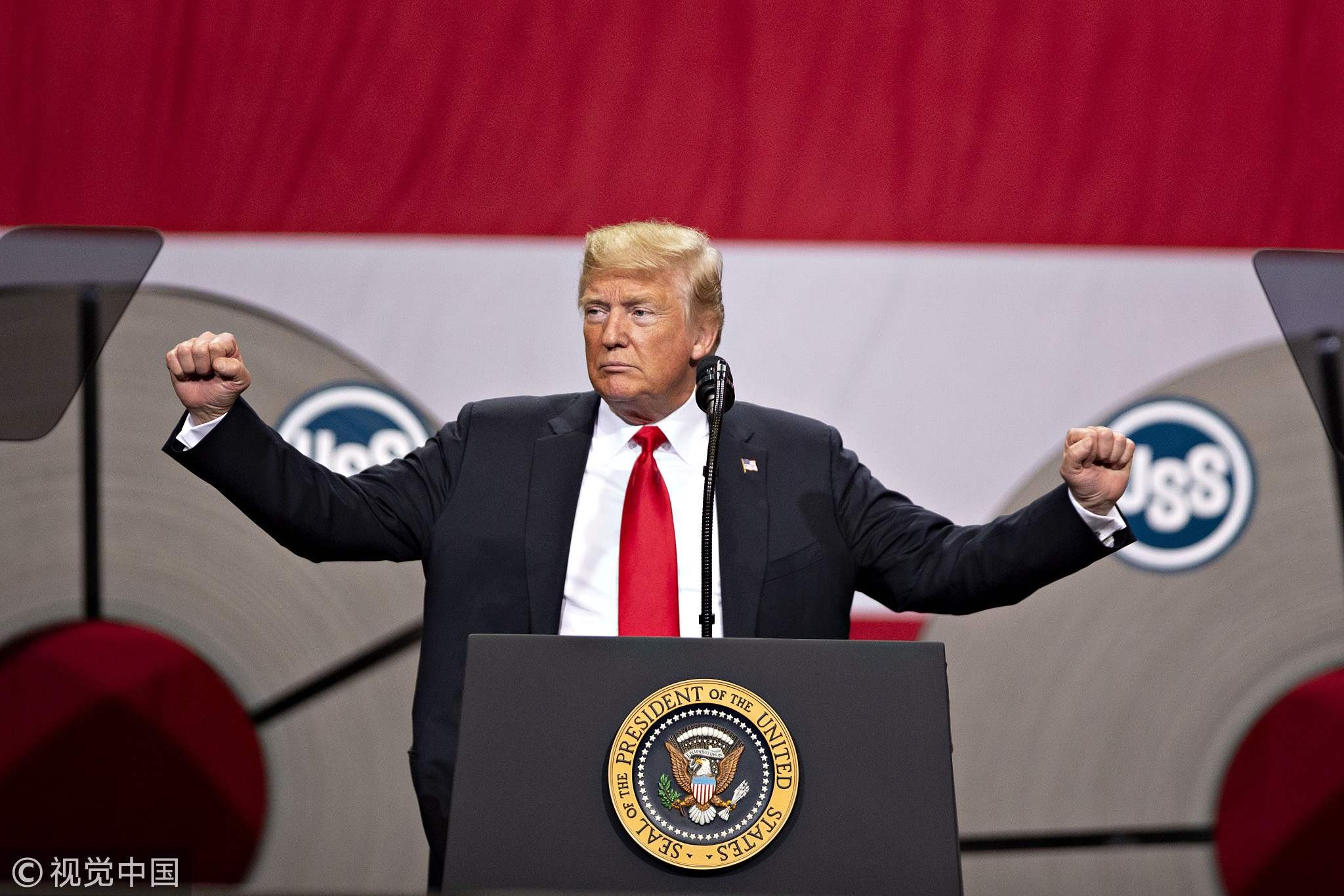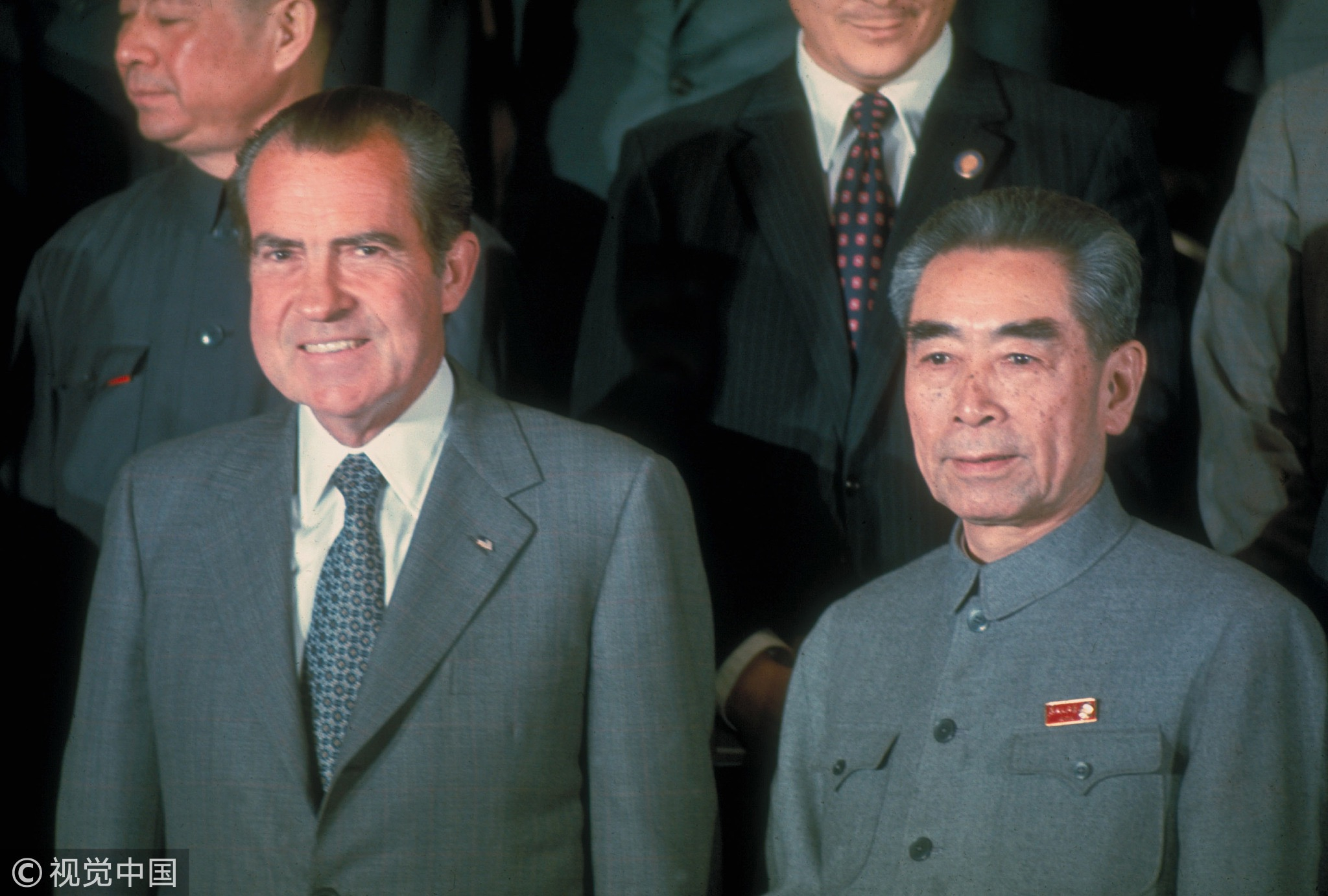
Opinions
13:18, 31-Jul-2018
Michael Pillsbury: China, US have no other path but to engage
Updated
13:06, 03-Aug-2018
By CGTN's Wang Xiaonan

What does Donald Trump and his trade policy look like in the eyes of a friend? Where is his trade conflict with China headed? Will the engagement policy still work given the escalating trade tensions?
CGTN's Wang Xiaonan conducted an exclusive interview with former Pentagon official Michael Pillsbury, currently the Director of the Center on Chinese Strategy at the Hudson Institute, to explore these issues. Mr. Pillsbury, the author of the bestselling book "The Hundred-Year Marathon," and is listed as one of the 10 names "that matter on China policy" by Politico Magazine.
CGTN: You helped President Trump during his transition into the White House. What are your impressions of him and his trade policy?
Pillsbury: He's a very brilliant leader. He asks for advice from people around him.
He first wrote about China in his book ("The America We Deserve"), probably in the year 2000, 18 years ago. And it's quite a lengthy description that China will be the biggest challenge to America. And he talked about specific issues, including trade. He has been very focused on China-US trade issues, during the campaign also. This is very different from other candidates for president.
You might say it's a unique trademark of President Trump to be so concerned about trade as a cause of a loss of American jobs. Most American economists don't believe this. They don't think trade deficit matters. Our mainstream media and think tanks criticize him all day long, making it very difficult for other countries, including China, to get a clear message about Trump, because of so many filters trying to spin negative stories about him.

US President Donald Trump gestures during an event at the US Steel Corp. Granite City Works facility in Granite City, Illinois, July 26, 2018. /VCG Photo
US President Donald Trump gestures during an event at the US Steel Corp. Granite City Works facility in Granite City, Illinois, July 26, 2018. /VCG Photo
CGTN: What do you think of the US-China trade war?
Pillsbury: No, the trade war has not begun. It's a dispute. If it can be handled correctly by both sides, we will be in a new phase of Sino-US cooperation. We once called China and the US a G2, which meant the world's two largest economies cooperating for global governance. This notion is still highly possible for the future development of Beijing-Washington relations.
CGTN: What has brought us to the trade dispute, the biggest in economic history? How did we get here?
Pillsbury: I've never seen such a challenge over the past 40 years. Since China and the US officially established diplomatic ties in 1979, they have been engaging with each other despite ups and downs in their relationships. The trade clash might be an eruption of a perennial anti-China sentiment.
There are basically three schools of thought on China back in the United States. First, there are nationalists who have been calling on the US government to contain a rising China, which, however, is not a majority view. Around 10 to 20 percent of anti-China Americans hold this view.
Another perception on China is completely the opposite. They've been clamoring for the "China collapse" theory. The book "The Coming Collapse of China" by Gordon G. Chang, published in 2001, was a bestseller back then. These people have a big say on China-US economic ties.
The third school is trade skeptics, who tap into specific issues concerning trade. They are longing to see a new type of major-country relations to be forged one day.

February 1972: Former US President Richard Nixon and former Chinese Premier Zhou Enlai during Nixon's visit to China. /VCG Photo
February 1972: Former US President Richard Nixon and former Chinese Premier Zhou Enlai during Nixon's visit to China. /VCG Photo
CGTN: Can the two countries continue with the engagement policy which has defined their bilateral relations over the last four decades?
Pillsbury: Yes, of course. There's no other path. We are now in a dangerous period. But I'm optimistic about the future.
Michael Pillsbury was in Beijing on Monday for the launch of a joint research project between the Center for China and Globalization (CCG) and the Hudson Institute to study China-US trade relations in the past 40 years, where they went wrong, and how to improve their trade relations in the upcoming decades.
(Cover Photo: Michael Pillsbury speaks at the launching meeting of a joint research project on China-US trade in Beijing, July 30, 2018. /CCG)

SITEMAP
Copyright © 2018 CGTN. Beijing ICP prepared NO.16065310-3
Copyright © 2018 CGTN. Beijing ICP prepared NO.16065310-3